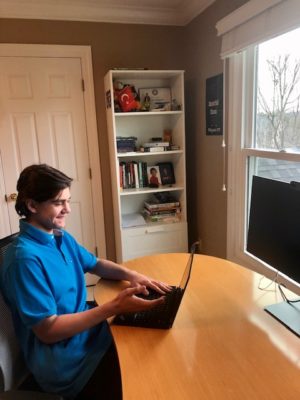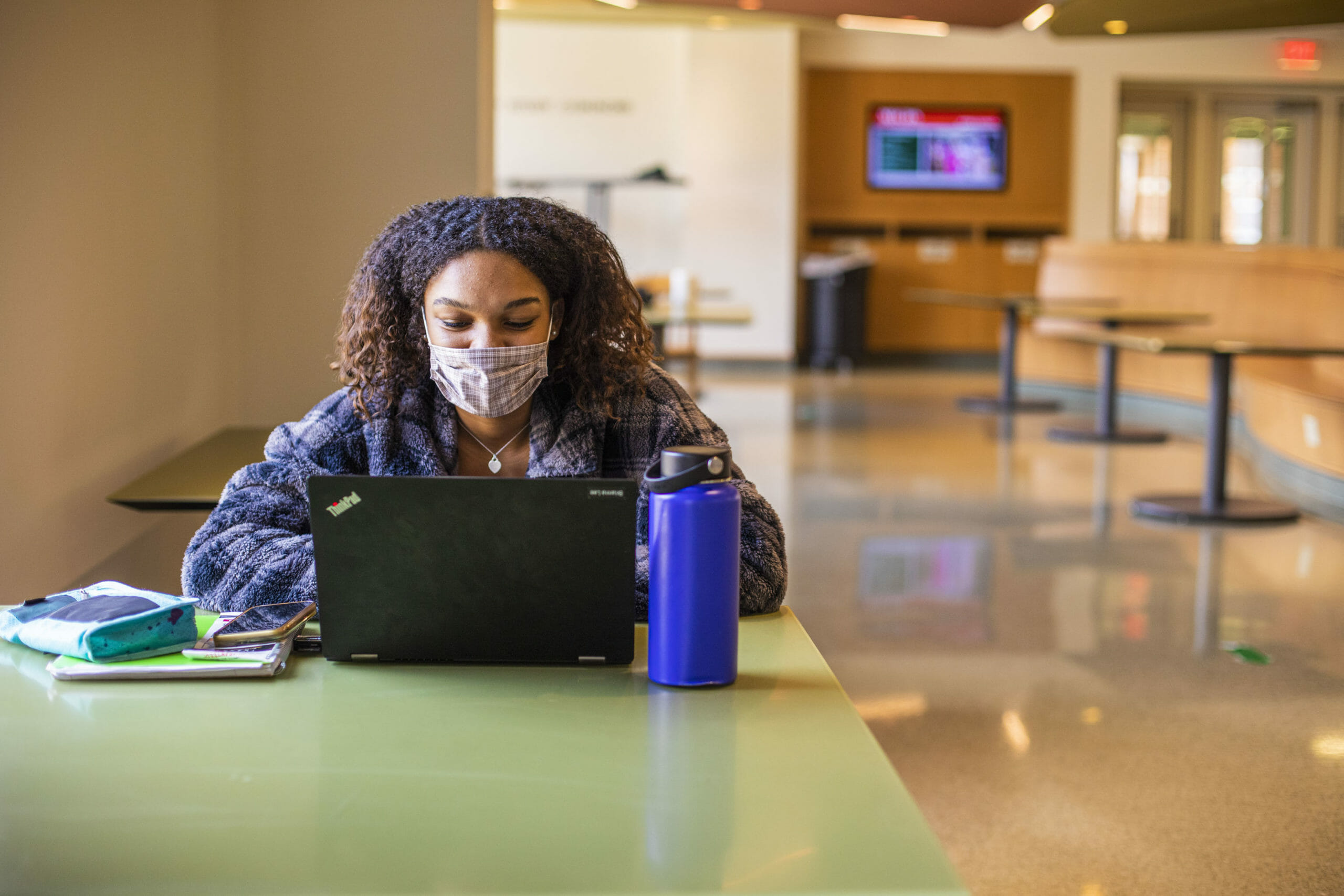 The second 8th Grade Peer to Peer mentoring session took place over Zoom last Thursday, and the groups dug into an important topic: making healthy decisions especially on social media, with drugs and alcohol, and with boundaries. The Upper School students know that the majority of middle and high school students do not use alcohol or drugs, nor do they vape, but it’s important to cover these topics anyway.
The second 8th Grade Peer to Peer mentoring session took place over Zoom last Thursday, and the groups dug into an important topic: making healthy decisions especially on social media, with drugs and alcohol, and with boundaries. The Upper School students know that the majority of middle and high school students do not use alcohol or drugs, nor do they vape, but it’s important to cover these topics anyway.
The advisories kicked off with a discussion about how things are going during the pandemic. Eighth graders were encouraged to share what kinds of things they do in their free time and on the weekends, and what has changed with pandemic limitations and quarantining. After a brief conversation, the mentors dug in with a hard-hitting question: What’s the general opinion in your class about drinking? Are you surprised that people drink in 8th grade? Do you think that only a few people in the class drink or that many do? And are you surprised by how your classmates answered this question?
Drinking, Smoking, Vaping, and Drugs
After getting a read on the class, advisories then discussed why people choose to drink, smoke, vape, or try drugs. The reasons vary, from a desire to be accepted by friends to curiosity, to look cool or older, to be able to say you’ve done it, to feel less tired or stressed, or to have “fun” or “feel the buzz.” The younger students learned that they’re going to be faced with individual choices and that as they get older, they’ll see more of their friends faced with the choice of whether to try something or not. The key is to find the balance; it’s okay to spend time with others who do it but if they pressure you to try and you don’t want to, then recognize they are not honoring your decisions. It’s important to realize that if they exclude you because you aren’t participating, then they’re not a good friend.
Mentors then asked, “What would you do if someone asked you to go to a party where you knew there would be drinking?” While they do not condone drinking or smoking, older students stressed that it’s important to be in a safe place and with people you trust if you know you will be around people who are drinking and smoking, or if there is a possibility you could be tempted. Mentors also shared the fear they feel when they see a friend under the influence of alcohol or drugs, and how scary it is to see them not in control of their actions.
What can students do if they’re concerned a friend is hurting themselves with alcohol or drugs? Although it’s difficult, students should confront their friends and tell them they care and are concerned. It may take some persistence, and students are also encouraged to talk to a trusted adult such as a parent, teacher, advisor, coach, or counselor for help. The groups talked about how friendships change and evolve in the Upper School, and how they’re based on trust. Mentors shared personal stories with their younger friends.
Setting Boundaries on Social Media
The conversation then turned to social media and setting healthy boundaries. This open conversation involved mentors getting a sense for how many students have social media accounts and normalizing that it’s okay if the younger students do not. Mentors who go into social media later shared their experiences and navigating any feelings of missing out. The advisories talked about being aware that what you post and share reflects on you and what people are going to think about you. Your social media account represents how you want people to see you and who you really think you are. It’s also important to remember that what you share on your own account might be reshared by others, reaching a much wider audience than you intended. A good filter is to think about the worst possible things that someone might think or respond with. Mentors advised that anything that touches on a way a person identifies – such as politics, race, and religion – is likely to be controversial. It’s also important to be careful how you respond to others’ social media posts. If you don’t agree with something someone posts, you should message or contact privately; don’t make a scene on a social media thread. And if you’re angry about something, don’t hit send. Wait until later when you can be more clear-headed and ensure you are leading with your thoughts and not just your emotions.
Eighth grade parents are encouraged to check in with their students to see how the Peer to Peer program is going and use the information in these summary articles as a way to further the discussion about difficult topics.
